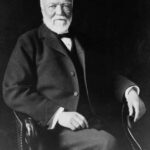The events playing out in the news over the past month, with Secretary of State John Kerry trying to broker peace talks between Israel and Palestine, got me thinking about how much national economic conditions affect a country’s bargaining position.
More specifically, I was thinking about the role a nation’s attitude toward business creation has in world affairs. Not too long ago a county’s wealth was defined in large part based on its natural resources. A country with the mineral resources to make better steel could produce stronger weapons, such as swords, which it used to defeat its neighbors in battle and gain economic wealth.
Such was the case with the Roman and Chinese empires. More recently, energy resources have been important to a nation’s standing. These include coal, which was used to power steam engines and is still an important energy source today. More recently, access to oil has contributed to the power of nations. Oil resources power the internal combustion engine, which gave rise to the industrial revolution.
Access to oil gives industrialized countries significant economic advantages. Access to coal allowed the United Kingdom to dominate in the 18th and 19th centuries. The US’s power in the 20th century is related to its access to coal and oil. Today, Russia has economic power over its neighbors. This is strongly related to Russia’s energy resources, which contribute about two-thirds of the nation’s GDP.
If a county’s natural resources have defined and shaped its economic wealth throughout history, then why would a country like Israel, literary intertwined geographically with Palestine and with access to the same natural resources, have a per-capita GDP fully twenty-five times greater then Palestine? A country’s natural resources must no longer play the same pivotal role they have throughout history. Then what is the new currency of national wealth? While Palestine’s GDP is largely based on agricultural products, a natural resource, Israel’s main contributors to its GDP include high-tech products like aviation, communications equipment, and medical electronics, which are not rooted in the county’s natural resources.
Therefore, in additional to a nation’s natural resources, national wealth is shaped by the nation’s attitude toward business creation, its attitude toward education, and most of all the culture of its workers. By embracing these attributes positively a nation can stimulate investment and the prosperity that follows.
Entrepreneurs embrace these same values and are the backbone of America’s current wealth and prosperity. However, through increased business-killing legislation and a general malaise spreading through the population, these values are beginning to atrophy. Attitudes that support business creation, education, and hard work are vital to national wealth in the modern world.
What are you doing to spread these three values to ensure our nation’s continued success?












